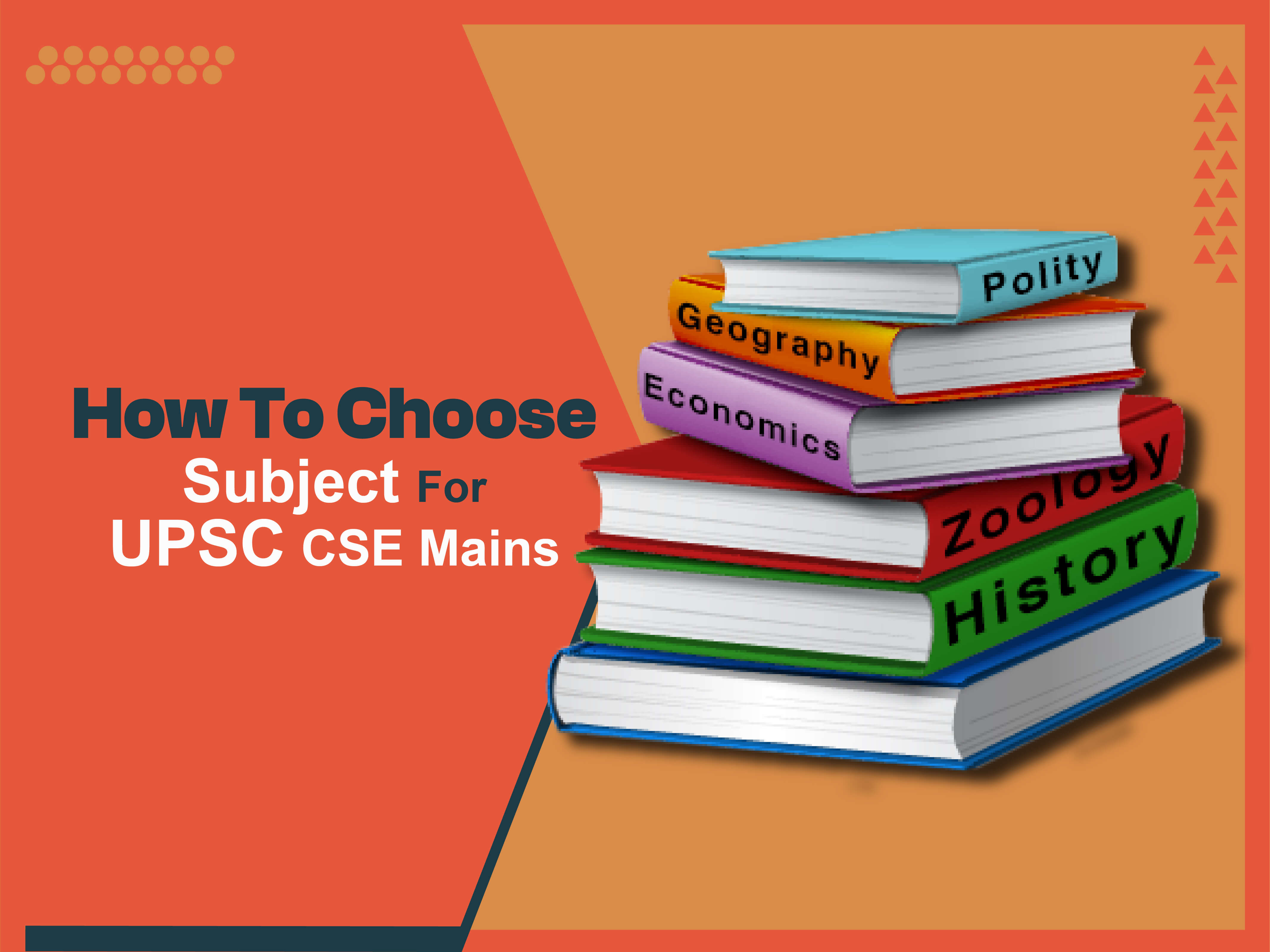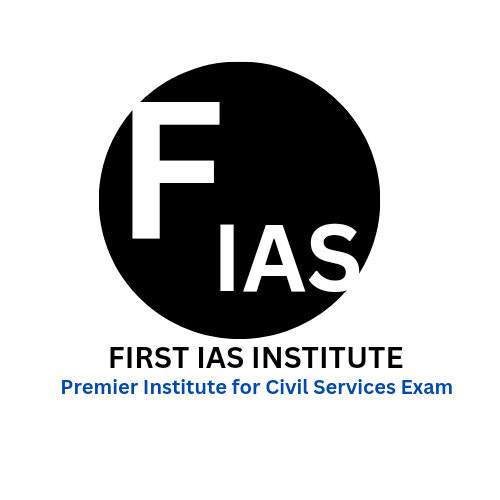
How to Choose Optional Subject for UPSC CSE Mains
Preparing for the UPSC Civil Services Examinationrequires dedication and strategic planning. The second stage of the exam, known as the Mains, tests candidates on a range of subjects through nine written papers. Choosing optional subjects for the Mains is an important decision that can impact a candidate's score and chances of further progressing to the Interview stage. With a wide array of subjects to choose from, candidates must evaluate their interests and strengths to select options that will allow them to score the greatest possible marks.
Overview of the UPSC CSE Mains Exam
The optional subjects in the UPSC CSE Mains exam allow candidates to choose two subjects they are most comfortable with and interested in. Candidates have the choice of selecting optional subjects from 23 disciplines in humanities, sciences, engineering, and commerce streams.
- Choosing optional subjects: Candidates should choose optional subjects based on their educational background, interest, and aptitude. Some key factors to consider while selecting optional subjects are:
- Subjects studied in graduation: Choosing subjects one has studied in detail during their undergraduate education gives candidates an edge. They are already familiar with concepts and topics, requiring less preparation.
- Interest and passion:Selecting subjects one is genuinely interested in and passionate about makes preparation enjoyable and effective. Candidates can go into greater depth and achieve higher scores.
- Available study material and guidance:Some optional subjects have limited study material and coaching available. Candidates should consider the availability of resources for preparation before selection.
- Scoring potential: Some optional subjects are conventionally considered more scoring than others due to the nature of the syllabus and questions. But, candidates should not choose subjects solely based on this factor. Scoring potential combined with the other factors provides the best approach.
Choosing Your Optional Subject for the UPSC Mains Exam
The choice of optional subjects for the UPSC Mains exam is crucial as it contributes a significant part to the total marks. Candidates should choose optional subjects that they are interested in and have good knowledge of. Some key factors to consider when choosing optional subjects are:
- The syllabus of the optional subject should match the candidate's educational background and interests. This will make it easier to prepare and score better. Subjects like Geography, Political science, and Public Administration are popular choices for humanities students, while Mathematics or Physics may apply more to science students.
- The availability of study material and guidance is important. Optional subjects that are popular choices will have more resources to help candidates prepare. This can save time and make self-study more effective.
- Some optional subjects may be perceived as ‘scoring' subjects. However, candidates should choose based on their strengths and not be overly swayed by perceptions. With hard work and the right preparation strategy, any optional subject can lead to good scores.
Evaluating Your Strengths and Weaknesses
To choose optional subjects for the UPSC CSE Mains, candidates must evaluate their strengths and weaknesses. Candidates should analyse their educational background, interests, and aptitudes to determine subjects they are most comfortable with and confident in.
Subjects that candidates have studied extensively in their graduate or postgraduate degrees are often good options, as candidates will already have a strong foundational knowledge in these areas. For example, a candidate with an undergraduate degree in History may find the History optional subject appealing. Likewise, candidates with a scientific background may gravitate toward optional subjects like Physics, Chemistry, Mathematics or Zoology.
Yet, candidates should not rely entirely on their academic backgrounds when choosing optional subjects. Interests and aptitudes are also important factors to consider. Candidates may discover that they have a passion for a subject outside their field of study. They may find they have a gift for linguistic subjects like Anthropology or Philosophy.
Candidates should think about the subjects they most enjoy learning and discussing. Optional subjects that align with candidates' interests and talents will allow them to study and write about these topics in an engaging, motivated way.
After evaluating strengths and weaknesses, candidates should do extra research on the syllabi of various optional subjects to determine which they believe they can excel in. Candidates should choose optional subjects that play to their strengths so they can achieve most marks in these papers. With thorough self-analysis and preparation, candidates can select optional subjects they are ideally suited for.
Understanding the Optional Subject Syllabus
To choose an optional subject for the UPSC CSE Mains, candidates must first understand the syllabus for the available options. The UPSC offers a wide range of optional subjects covering humanities, sciences, engineering, and languages. Candidates should choose an optional subject based on their educational background and interest.
The syllabus for each optional subject contains many sections, units, and chapters. For humanities subjects like History, Geography, Sociology, and Political science, this syllabus covers a wide range of topics from ancient to modern India.
Science optionals like Physics, Chemistry, Zoology, and Botany have detailed syllabi covering fundamentals as well as recent developments. Engineering subjects like Civil Engineering and Mechanical Engineering deal with core engineering concepts and technologies. Language optional like Hindi and English Literature have syllabi including prose, poetry, drama, and grammar.
In summary, to choose the right optional for the UPSC CSE Mains, candidates should evaluate many factors like educational background, interest, syllabus, and availability of study resources. Choosing an optional subject that plays to one's strengths and interests can help maximise scores in the exam. With meticulous preparation, any optional subject, whether technical or humanities, can lead to success in the CSE.
Tips for Preparing for the Optional Papers
Choosing optional subjects for the UPSC CSE Mains exam is an important decision. Candidates should choose subjects they have studied in their undergraduate or postgraduate degrees. Familiarity with the subject matter will make preparation easier.
Subjects like Political science, History, Geography, Sociology, and Public Administration are popular choices for humanities students. For science students, subjects like Mathematics, Statistics, Physics, Chemistry, Zoology, and Botany are good options.
-
Focus on the syllabus
The UPSC provides detailed syllabi for all optional subjects. Candidates should study the syllabus thoroughly and prepare systematic notes and summaries for each topic. The focus should be on understanding concepts and themes rather than memorising facts.
-
Choose standard books
For each optional subject, candidates should refer to books by renowned authors that cover the entire syllabus. NCERT books for school students are also helpful for fundamentals. Candidates can also solve previous years' question papers to understand the exam pattern and types of questions.
-
Practice answer writing
Answering model questions and previous years' papers in a timed environment is key to success. This helps to identify weak areas and improve answer writing skills. Candidates should get their answers evaluated by teachers or experts for critical feedback.
-
Stay updated with current affairs
For some optional subjects like Political science, Sociology, or Public Administration, candidates should follow current news and events related to their subjects. Contemporary developments and issues should be incorporated in answers wherever relevant.
Conclusion:
As the second stage of the UPSC CSE exam, the Mains exam requires considerable preparation to succeed. While the compulsory papers test a candidate's knowledge and skills, the optional subjects allow one to demonstrate expertise and in-depth understanding of a particular field.
Choosing optional subjects wisely based on one's strengths and interests can give candidates a competitive edge. With the overall cut-off marks for the Mains exam increasing every year, selecting optional subjects that align with a candidate's aptitude and passion is key to maximising scores and moving ahead to the Interview stage.
For any candidate aspiring to join the Civil Services, thorough preparation and strategic choices at each stage of this prestigious exam can make all the difference in achieving their goal.






